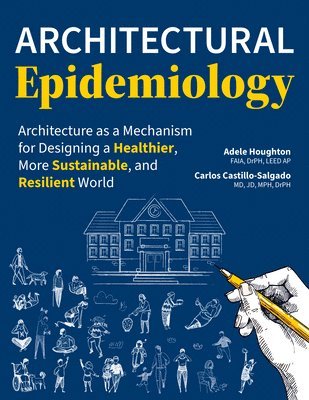Kommande

1549:-
How to create healthier, sustainable, and resilient communities using place-based design strategies. In a world where real estate development often overlooks the critical link between our built environment and public health, architectural epidemiology has emerged as a groundbreaking field that reimagines how to design, build, and inhabit our spaces. Adele Houghton and Carlos Castillo-Salgado bridge the gap between two disparate fields to propose a new, transdisciplinary approach aimed at fostering community and planetary health. Architectural Epidemiology leverages building design, renovation, and operations to improve health outcomes among building occupants and in the surrounding community. Drawing from both environmental and applied social epidemiology, this novel approach deploys a problem-solving methodology to identify the evidence-based strategies in building design and operations that could lead to positive or negative health outcomes by reducing exposure to environmental hazards and promoting healthy behaviors. The authors illustrate how thoughtful, place-based design can mitigate the adverse effects of climate change, chronic diseases, and other public health challenges. Real-world examples from diverse settings demonstrate the practical application of architectural epidemiology and its impacts on community and planetary health. Practical tools and infographics translate complex scientific data into actionable design strategies, helping professionals from various disciplines collaborate effectively. The principles and applications of architectural epidemiology can drive meaningful action on climate change, sustainable development, and environmental justice while improving public health outcomes and transforming our built environment into a healthier, more equitable world.
- Illustratör: color 55 Illustrations 36 Illustrations color
- Format: Pocket/Paperback
- ISBN: 9781421450698
- Språk: Engelska
- Antal sidor: 306
- Utgivningsdatum: 2025-07-01
- Förlag: Johns Hopkins University Press

